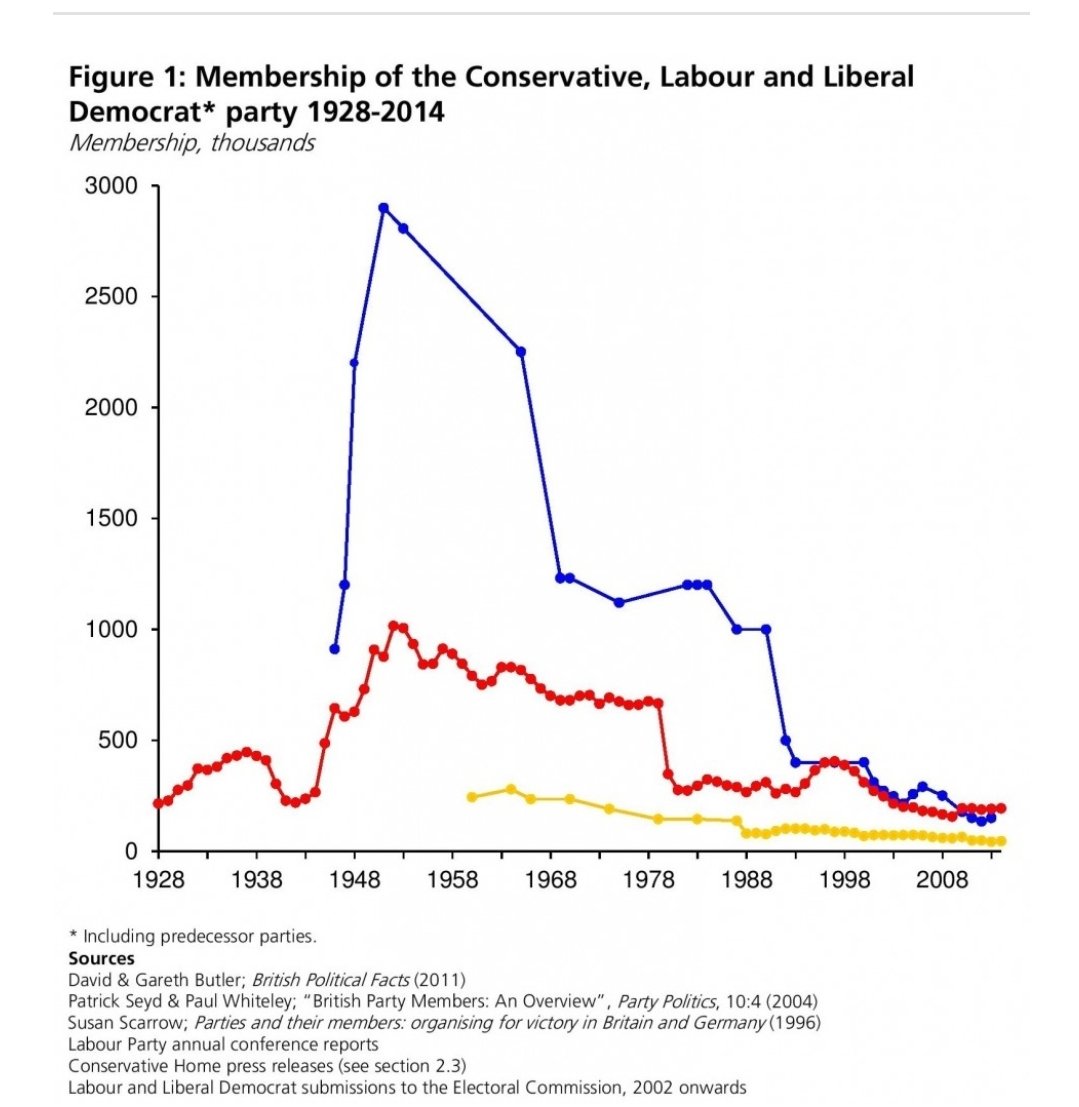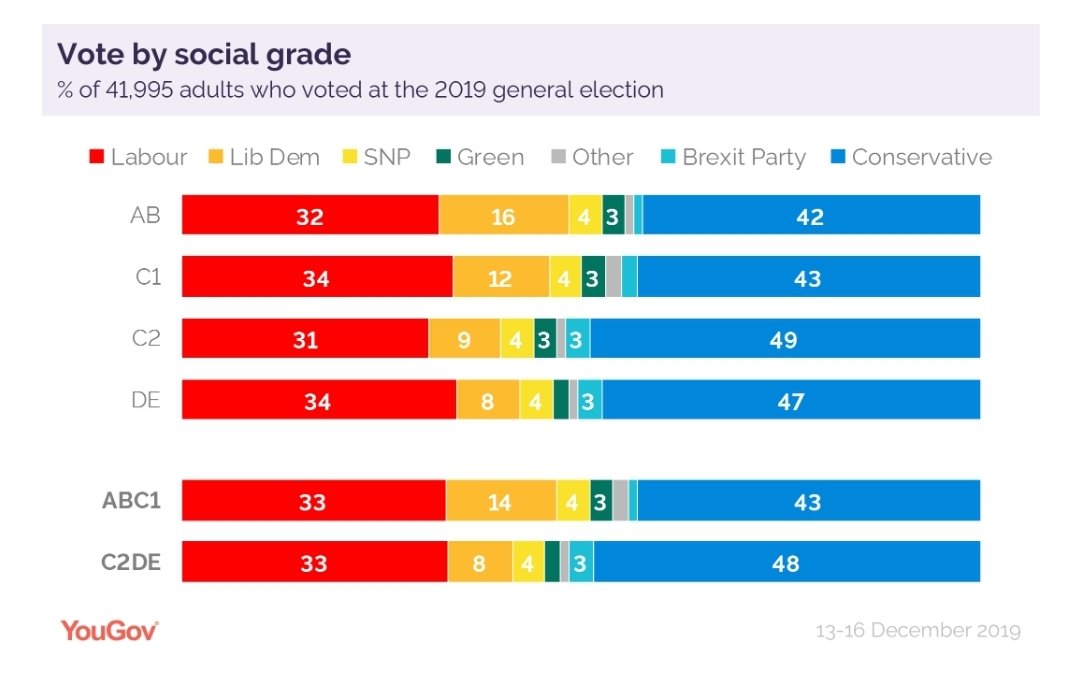1/ Deindustrialisation has greatly weakened working class communities and organisations. And that means there is no left-wing sociopolitical counterweight to the power of the super-rich and their political and media lackeys and hirelings.
2/ The Tories used to be a mass membership party belonging to the middle class and British business. But that too has ended, and the middle class is now socially and politically divided and so, like the working class no longer serves as a political powerhouse.
3/ The decline of the political strength of the working and middle classes, means that the two main sociopolitical forces which drove democratisation during the industrial epoch, are now all but dead. The last election showed class as having little impact on voting.
4/ The collapse of class politics has caused large parts of the electorate to seek safety, reassurance and identity in tribal nationalism, which in England also divides the socially conservative from the social liberal - hence a toxic combination of tribal and cultural divisions.
5/ The collapse of class politics has set large portions of the electorate adrift as a frightened, confused and disorganised mass ripe for manipulation by the hard right and their kleptocratic paymasters. Tribal nationalism serves very well as a tool of manipulation.
6/ Those opposed to socially conservative nationalism are also adrift. Neither of the two main parties represents us and FPTP blocks reform. Labour is dominated by the progressive middle class, but they cling to the idea of it as a working class party, so it flounders.
7/ We who are opposed to socially conservative tribalism have no coherent social organisation on the back of which a political movement could naturally develop. We are a disorganised mass, scattered across parties, organisations and social media.
8/ So class-based politics is dead. The working and middle classes are dead as political forces. The only political powerhouses are the kleptocrats and the tribal nationalism which is manipulated by the kleptocrats& #39; money via their political and media lackeys.
9/ The question which arises is how do we respond to the radical political consequences of deindustrialisation. I have no big picture answer, nothing like the formation of the labour movement which generated the last epochal political change.
10/ This is all very depressing. But to do anything we must first understand the problem. And if we do understand the problem then we will have a far stronger motivation to work together on ways of overcoming it. And we do have the numbers and the skills.

 Read on Twitter
Read on Twitter



